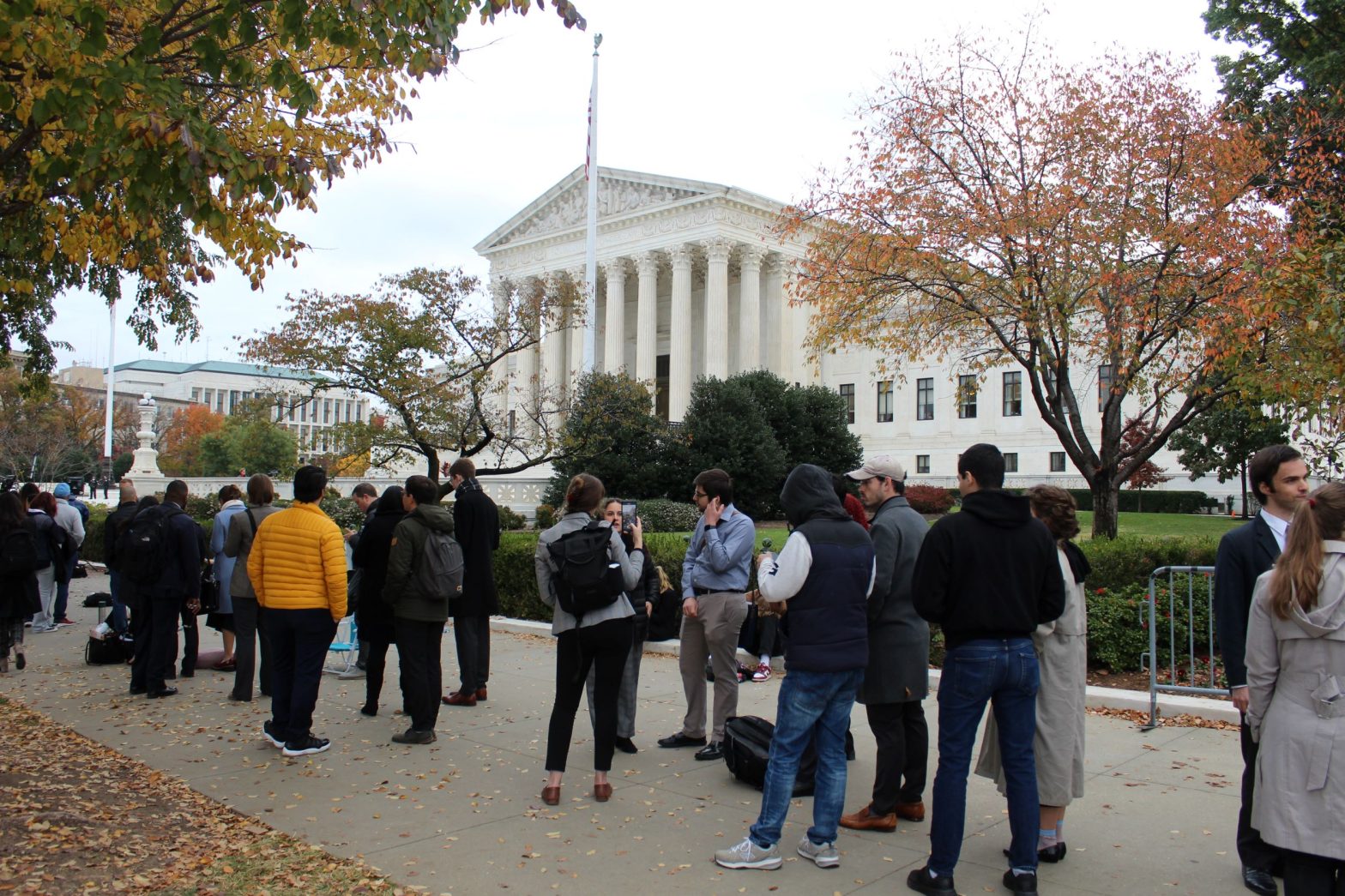Pressure Mounts on Supreme Court to Adopt a Code of Ethics for Itself

WASHINGTON — Political pressure is mounting on the U.S. Supreme Court to adopt a code of ethics for itself similar to the one that binds all other federal courts.
In a move last week, members of Congress reintroduced a bill that could compel a code of ethics for Supreme Court justices. A similar measure failed last year but lawmakers say this time growing public support gives it a better chance.
Lawmakers have complained the justices allow their own political views to influence rulings and get away with conflicts of interest that might bind others.
Last year’s Dobbs v. Jackson Women’s Health Organization decision that outlawed a federal right to abortion enraged many liberals about being too politicized.
“Every federal judge is bound by a code of ethics, except for the nine who sit on the highest court in the country,” said Sen. Chris Murphy, D-Conn. “Trust in the Supreme Court is at a historic low because the American people see justices hide their conflicts of interest and openly engage in political behavior.”
Murphy introduced the bill, called the Supreme Court Ethics Act, in the Senate. If Congress approves it, the legislation would require the U.S. Judicial Conference to issue a code of conduct for the Supreme Court. The Judicial Conference oversees ethics and management of federal courts.
Other provisions would appoint an Ethics Investigations Counsel to set up a process for the public to report unethical conduct by the justices and to launch independent investigations.
The legislation also would require the justices to recuse themselves when cases present a conflict of interest for them. They would need to publicly disclose the conflicts.
Other support for reform comes from the American Bar Association, where its 591-member House of Delegates last week approved a resolution calling for a Supreme Court code of ethics.
The resolution went further by recommending that federal, state, local and territorial bar associations “adopt their own resolutions urging the Supreme Court of the United States to adopt a code of judicial ethics.”
In addition to the resolution, the American Bar Association said in a statement that “the absence of a clearly articulated, binding code of ethics for the justices of the court imperils the legitimacy of the court.”
Until recently, the Supreme Court has evaded a code of ethics by claiming a need for independence as it fulfills its unique role of deciding constitutional issues. The justices are concerned a code of ethics might be overly restrictive in their job duties.
They say they try to voluntarily comply with the same ethics rules as other federal judges by filing annual financial disclosure forms, such as on outside income, gifts and travel paid by other persons.
The justices acknowledge they are working behind the scenes to craft a code but have not been able to reach complete agreement on it.
Justice Elena Kagan told a House appropriations subcommittee in 2019, “It’s something that is being thought very seriously about.”
The issue gained momentum a year later when Virginia “Ginni” Thomas, wife of Justice Clarence Thomas, played a role in challenging the 2020 presidential election vote count while her husband considered cases on the subject. Ginni Thomas was a supporter of Donald Trump.
Chief Justice John Roberts addressed calls for a Supreme Court code of ethics in a 2011 end-of-year report on the court’s activities.
He said the nine justices already follow the code of ethics of other federal courts but acknowledged their efforts were voluntary.
Roberts said that if the code of ethics became mandatory, it could violate the Constitution’s separation of powers.
Enforcing a code of ethics on the Supreme Court could cause more conflicts than it resolves, Roberts wrote.
If the court did try to police its own ethics, “it would create an undesirable situation in which the court could affect the outcome of a case by selecting who among its members may participate,” Roberts wrote.
The legal research outlet Bloomberg Law reported Monday that Supreme Court justices recused themselves from about 3% of the appeals the court handled since 2018.
Among the 750 recusals, few of the justices listed the reasons they removed themselves from the cases. The Bloomberg Law review showed that personal financial interests and previous cases in which they represented a party were the most common reasons for recusal.
You can reach us at [email protected] and follow us on Facebook and Twitter
























